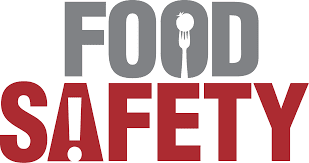The habit of
home cooked food is becoming a myth now as in today’s fast paced world people are getting more and more used to fast
foods or processed foods. Preparing a meal is time
consuming and people nowadays are so busy that cooking has taken a back
seat. It is far easier to pick up something or the other from the supermarket
shelf and pour a little hot water into it, or oven-heat it and have a ready
lunch or dinner in two minutes flat. In today’s world everyone is running
around to meet their deadlines and therefore these processed food or fast food
has become the ideal solution for the time
crunched population. Ready made food both tastes good and is easy to
procure. They are also cheap and tasty so no doubt more and more families or
even single people are getting into the habit of consuming fast food or
preserved food. There are stores all
over the world that are selling a variety
of ready-made pastes, bread spreads, mixes, jellies, jams and or simply eat out
at cafes, restaurants, pubs, bars, or even roadside stalls having n array of
tasty spreads. But all that is easy has some or other drawbacks. There are no
shortcuts to good health and there are a number of drawbacks and health hazards
that becomes apparent with continuous fast food eating.
People place
all their trust on the people who manufacture these food products without
having any real knowledge about the ingredients that are put in such items and hence might as well be consuming
harmful substances which do more harm
than good to an individual’s health. The direct result of these can be seen in
the various foodborne illnesses. “Food
safety” is a word that has been coined for controlling the different stages of
food production, manufacturing and processing so that when the end consumer
actually consumes this food they are eating things which are free from harmful
chemicals, man-made tampering, and other substances that enhance the color and look of the food
products. But there are loopholes in the system despite the various stringent
checking methods and therefore there is no guarantee when a food product or a
finished food becomes contaminated and pose a health hazard to the consumer. There
are various stages where a food can become contaminated, like when a raw food
is developed in contaminated soil or water. There can be different kinds of
viruses, animal or human waste, bacteria, and other chemical components that
can contaminate the soil or the water, and these can be passed into the
produce. These foods when cooked can cause illness to the person who is
consuming it and that is the classic example of food borne sickness. This is
where a food lawyer
can help the consumer to sue the seller or the eatery for the damages caused by
food poisoning.
Many people
are unaware of the fact that they can claim compensation for the suffering that
has been caused to them by a contaminated food product, whether cooked or
uncooked. A food lawyer
will help the victim of the food poisoning to gather evidence that a particular food or restaurant is responsible for
the food borne illness and prepare the case accordingly so that the victim
receives the adequate compensation for all the hospital and treatment bills. Thus,
next time you have an upset stomach, think hard and you will most probably find
that it is the result of food poisoning rather than stomach flu. There are
various other symptoms of food poisoning and they can be pretty serious. You
can suffer from symptoms like vomiting, abdominal pain, nausea, and diarrhea
because chances are that the food you ate at that corner eatery served you food
which had different viruses, parasites, and bacteria. There are many different
types of bacteria like Campylobacter, Salmonella,
Botulism, E.Coli, which can cause food borne sickness. There is serious food
poisoning which includes noroviruses rotaviruses and hepatitis A. Harsh food
poisoning can cause you to visit the hospital to help you recover and miss work
and pay. The other side effects are lost wages as well as high medical bills
which cannot be ignored. Hence the guilty party should pay and a lawyer will
help in precisely preparing the case which proves your case in the court of
law.


